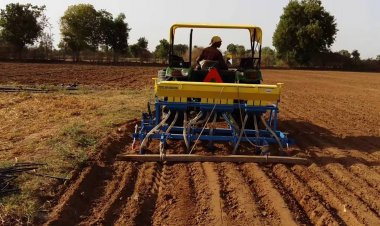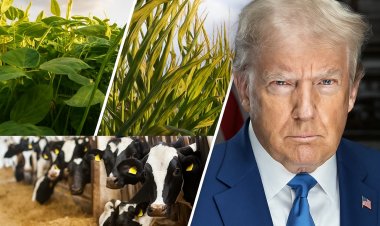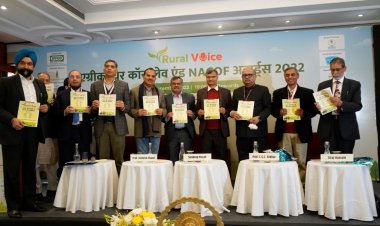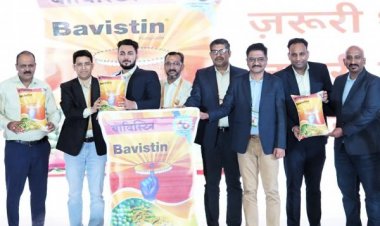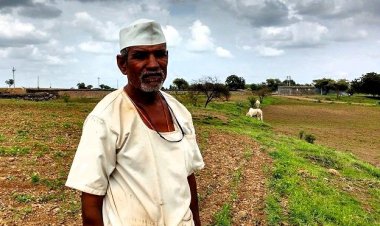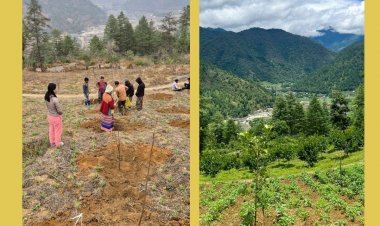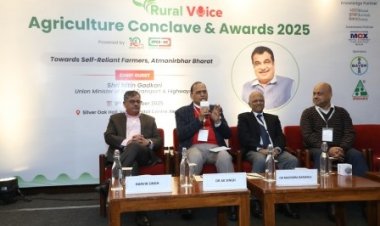Genome-edited plants exempted from biosafety regulations; process to develop new varieties will speed up
According to the memorandum, some ministries and departments had sought exemption in pursuance of Rule 20 of the Manufacture, Use, Import, Export and Storage of Hazardous Microorganisms/Genetically Engineered Organisms or Cells Rules, 1989. The Union Government has, therefore, decided to exempt the plants under SDN1 and SDN2 categories from the application of the provisions of Rule 7 to 11 of these Rules. For such genome-edited plants to be released as a new variety, further development and evaluation will be as per other applicable laws/acts/rules.

The SDN1 and SDN2 categories of genome-edited plants free from exogenous-introduced DNA have been exempted from biosafety guidelines. An office memorandum was issued in this regard today March 30, 2022, by the Ministry of Environment, Forest and Climate Change (MoEF&CC). The decision had been hanging fire for about a year because the ministry officials had written a letter to the states in September 2021 seeking their opinion in this regard. But the majority of the departments concerned and scientists were not in favour of such a process.
The memorandum issued in this regard says that the Department of Biotechnology (DBT), Ministry of Science and Technology, the Department of Agriculture Research and Education (DARE) and the Ministry of Agriculture and Farmers’ Welfare had recommended that the SDN1 and SDN2 genome-edited products free from exogenous introduced DNA be exempted from biosafety guidelines. The genes from the same plant family are used in this technology and no foreign genes are involved. It is, therefore, different from Genetically Modified (GM) technology. It is on this basis that exemptions from biosafety guidelines had been sought for this technology. About two weeks ago, a senior official from the Ministry of Agriculture had told Rural Voice that the Ministry had given its opinion in its favour.
According to the memorandum, the abovementioned ministries and departments had sought exemption in pursuance of Rule 20 of the Manufacture, Use, Import, Export and Storage of Hazardous Microorganisms/Genetically Engineered Organisms or Cells Rules, 1989. The Union Government has, therefore, decided to exempt the plants under SDN1 and SDN2 categories from the application of the provisions of Rule 7 to 11 of these Rules. For such genome-edited plants to be released as a new variety, further development and evaluation will be as per other applicable laws/acts/rules.
Rural Voice had carried a detailed story on this issue on 29 September 2021 which may be accessed at the following link: https://eng.ruralvoice.in/national-23/seeking-consent-from-states-for-trials-of-genome-edited-plants-may-create-hurdles-in-benefiting-from-new-technology.html
In fact, the genes from one plant family is edited in this technique and it is possible to produce a new variety by selecting traits like better productivity, disease resistance and temperature resilience from plants of the same family. Besides, one may benefit from a better-targeted approach through this. The benefit of this technology is that it cuts short the process of developing new varieties. Scientists say the process gets accelerated. That is, any crop variety may be developed in a very short period. Biosafety regulations are not applicable on genome-edited technology in the US and UK either.
Speaking to Rural Voice on the decision of the government, Dr RS Paroda, former Director General (DG) of the Indian Council of Agricultural Research (ICAR) and Chairman of the Trust for Advancement in Agricultural Sciences (TAAS), said, “Exempting genome-edited technology from biosafety guidelines will lead to faster development of new varieties. Another advantage is that the bio-resources available in the country can be utilized for public goods.” The beauty of this technology lies in the fact that not only can higher-yield genes be introduced into the plants through it but it can also play a big role in food and nutrition security because the nutrients available in various varieties of a plant can be brought together in one plant. Besides, this technology can also make plants resistant to climate change and temperature variations. Says Paroda, “We already have a banana species ready at the Mohali-based National Agri-Food Biotechnology Institute (NABI).”
This technology has greatly shortened the process of developing new species. Besides, it is capable of producing accurate results. The new gene-editing technique is called Clustered Regularly Interspaced Short Palindromic Repeats (CRISPR)/Cas9. The 2020 Nobel Prize for Chemistry was awarded jointly to France’s Emmanuelle Charpentier and the US’s Jennifer Doudna for developing this gene-editing technique. The technique is being used to develop new species through gene editing. Several varieties have been released in the US and France using this technology. Other countries that are using this technology to their benefit include Japan and Australia.
According to sources, ICAR had started work to take advantage of this technology. Besides, after a detailed discussion with the National Academy of Agricultural Sciences (NAAS), the DBT had framed the draft guidelines for the safety assessment of genome-edited plants. An expert committee constituted by the DBT had also reviewed the draft guidelines. Also, the Regulatory Committee on Genetic Manipulation (RCGM) had approved the same.
In March last year, institutes concerned with agriculture research had prepared a brief. These institutes included TAAS, National Academy of Agricultural Sciences (NAAS), ICAR, Biotech Consortium India Ltd (BCIL), Tata Institute for Genetics and Society (TIGS), NABI and Biotechnology Industry Research Assistance Council (BIRAC). These institutes had held a dialogue on this topic in March 2021 and found the technique necessary for the country’s agriculture.



 Join the RuralVoice whatsapp group
Join the RuralVoice whatsapp group


















